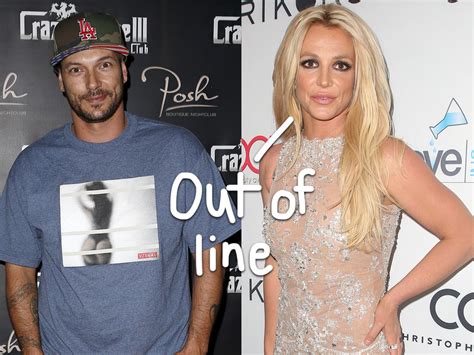
Kanye West, now known as “YE,” has once again changed his name, this time to “¥€,” sparking confusion and amusement among fans. The artist, legally known as Ye, announced the alteration on X (formerly Twitter) without providing a specific explanation, leaving followers to speculate about the meaning and motivation behind the latest moniker. This change follows a history of name alterations, solidifying West’s reputation for unconventional and attention-grabbing behavior.
The announcement, made via a cryptic post on X, featured the new name “¥€” displayed prominently. While the artist has not issued an official statement clarifying the alteration, the internet has already exploded with theories and humorous reactions. This move continues West’s pattern of rebranding and self-reinvention, which has become a hallmark of his public persona.
This is not the first time West has altered his identity. In 2018, he initially announced his intention to be known simply as “Ye,” a move he eventually made official in 2021 through a Los Angeles court. The stated reason for the change at the time was for personal reasons. “I believe ‘ye’ is the most commonly used word in the Bible, and in the Bible, it means ‘you,'” West said at the time, explaining the spiritual significance of the name. This initial change was met with a mixture of curiosity and acceptance, as fans and media outlets adapted to the new nomenclature.
The transition to “YE” was legally finalized on October 18, 2021, when a California judge approved the request. The move was seen by many as another example of West’s artistic expression and desire to control his own narrative. However, the latest shift to “¥€” introduces a new layer of complexity.
The symbol “¥” represents the Japanese Yen, while “€” represents the Euro. This combination has led to varied interpretations, including theories that West is hinting at a focus on international markets, particularly in Japan and Europe. Another interpretation suggests a commentary on the value and commodification of art and celebrity in the global economy. Some fans also joked about the impracticality of typing the symbol and the potential for misinterpretation in different contexts.
Reactions to the “¥€” name change have been widespread and diverse. Social media platforms are filled with memes, jokes, and serious discussions about the implications of the change. Many fans express confusion, while others see it as a continuation of West’s eccentric behavior. Media outlets have also weighed in, with some criticizing the change as a publicity stunt and others analyzing it as a reflection of West’s evolving artistic vision.
This latest development also occurs amidst a period of considerable controversy for West. In recent years, he has faced widespread criticism for making antisemitic remarks, promoting conspiracy theories, and engaging in other forms of problematic behavior. These actions have led to the termination of several lucrative partnerships, including those with Adidas and Balenciaga.
The controversy surrounding West has undoubtedly impacted his public image and financial standing. Many have questioned whether his behavior is a calculated attempt to generate attention or a genuine reflection of his beliefs. Regardless of the motivation, it is clear that West’s actions have had significant consequences.
The Adidas partnership, in particular, was highly lucrative, generating billions of dollars in revenue. The decision to terminate the partnership was a significant blow to West’s financial empire. Similarly, Balenciaga severed ties with West following his controversial behavior, further isolating him from the mainstream fashion industry.
In addition to the business ramifications, West has also faced personal challenges. His highly publicized divorce from Kim Kardashian and struggles with mental health have been subjects of intense public scrutiny. These personal issues have added another layer of complexity to his already controversial public persona.
Despite the controversies and challenges, West remains a significant figure in the world of music and fashion. His influence on popular culture is undeniable, and his creative output continues to generate attention and discussion. Whether the “¥€” name change is a passing whim or a sign of a deeper transformation remains to be seen. However, one thing is certain: Kanye West, now “¥€,” will continue to be a subject of fascination and controversy for years to come.
The implications of the name change on his business ventures remain unclear. It’s uncertain whether official documents will reflect this change and how it might affect future collaborations or partnerships. Furthermore, the practicalities of using the new name in various contexts, such as legal documents, contracts, and social media platforms, also present challenges.
West’s history of reinvention is well-documented. From his early days as a producer to his successful career as a rapper and fashion designer, he has consistently pushed boundaries and challenged conventions. His willingness to experiment and take risks has been both praised and criticized, but it has also been a defining characteristic of his career.
The latest name change may be seen as another example of this reinvention. By adopting the moniker “¥€,” West is signaling a desire to break free from the constraints of his past and embrace a new identity. Whether this new identity will be embraced by his fans and the wider public remains to be seen.
The use of currency symbols in the name also raises questions about West’s views on wealth and commerce. He has often expressed contradictory views on these subjects, criticizing the excesses of consumer culture while also celebrating his own success and accumulation of wealth. The “¥€” name change may be interpreted as a commentary on these contradictions.
Some critics have accused West of using these controversies as a way to generate attention and boost his profile. They argue that his outrageous behavior is a calculated attempt to stay relevant in a rapidly changing media landscape. Others defend West, arguing that he is simply expressing his true self, regardless of the consequences.
Regardless of one’s perspective, it is clear that West’s actions have sparked a wider conversation about the role of celebrity in society, the boundaries of free speech, and the responsibility of public figures to be mindful of the impact of their words and actions. These are complex and important issues that deserve careful consideration.
The “¥€” name change is just the latest chapter in the ongoing saga of Kanye West. It is a story that is filled with contradictions, controversies, and moments of brilliance. As he continues to evolve and reinvent himself, it will be interesting to see what the future holds for this enigmatic and influential figure.
The world awaits further explanation or action from West, which may come in the form of new music, social media posts, or public appearances. Until then, the meaning of “¥€” remains a topic of speculation and debate, further cementing Kanye West’s status as one of the most talked-about figures in contemporary culture. The entertainment world and his fanbase now observe as this saga unfolds, with implications rippling across music, fashion, and the broader cultural landscape.
The latest move underscores West’s continuous efforts to remain at the forefront of public attention, regardless of the nature of the spotlight. His journey, often marked by both artistic innovation and personal turmoil, serves as a powerful reminder of the complexities inherent in fame, creativity, and the ever-blurring lines between personal expression and public responsibility. As the world grapples with interpreting this latest shift, it is evident that Kanye West, now “¥€,” will remain a subject of intense scrutiny and discussion for the foreseeable future. The intersection of art, identity, and commerce will undoubtedly continue to be central themes in his ongoing narrative.
The change further complicates his already complex public image, particularly given the controversies surrounding his past behavior and statements. It adds another layer to the ongoing narrative of an artist constantly seeking to redefine himself, even at the expense of alienating some of his audience. Whether this is a genuine reflection of his artistic vision or simply a calculated attempt to stay relevant remains a matter of speculation.
Given West’s history, it’s likely that the reasoning behind the name change is multifaceted, encompassing elements of artistic expression, personal identity, and perhaps even a commentary on the global economy. Without direct clarification from West himself, however, definitive answers remain elusive. This ambiguity only serves to fuel further speculation and discussion, solidifying his position as a figure who consistently defies easy categorization.
The name change also raises practical considerations. Will official documents and legal contracts reflect this new moniker? How will social media platforms and streaming services adapt to accommodate the unconventional symbols? These logistical challenges could potentially complicate his business dealings and public engagements. Furthermore, the use of currency symbols could be interpreted differently in various cultural contexts, leading to potential misunderstandings or misinterpretations.
Despite the controversies and challenges, West’s influence on music, fashion, and popular culture remains undeniable. His willingness to experiment and push boundaries has inspired countless artists and designers. Whether the “¥€” name change will be viewed as another example of his creative genius or simply a bizarre publicity stunt remains to be seen. Regardless, it is clear that Kanye West, now “¥€,” will continue to be a force to be reckoned with in the world of entertainment and beyond.
The reaction to the name change also highlights the parasocial relationship that many fans have with celebrities. People feel invested in West’s journey and have strong opinions about his choices, even though they have never met him personally. This phenomenon underscores the power of celebrity culture and its impact on individual perceptions and beliefs.
Moreover, the name change serves as a reminder of the ever-evolving nature of identity in the digital age. People are increasingly able to define themselves and present themselves to the world in ways that were previously unimaginable. This newfound freedom can be empowering, but it can also lead to confusion and uncertainty. West’s constant reinvention of himself may be seen as a reflection of this broader cultural trend.
In conclusion, the “¥€” name change is a complex and multifaceted event that defies easy explanation. It is a reflection of Kanye West’s unique personality, his artistic vision, and his place in the world. It is also a sign of the times, highlighting the ever-changing nature of identity, celebrity, and culture in the digital age. Whether you love him or hate him, it is impossible to ignore Kanye West, now “¥€.” His actions continue to provoke, inspire, and challenge us to think differently about the world around us.
The situation surrounding West and his continuous reinvention of himself can also be seen as a commentary on modern society’s obsession with branding and image. In a world where personal branding is increasingly important, West seems to be taking this concept to its extreme, constantly tweaking and redefining his public persona. This raises questions about the authenticity of identity and the pressure to conform to certain expectations.
Furthermore, the controversy surrounding West’s past actions and statements has sparked a broader discussion about the consequences of free speech and the responsibility of public figures to be mindful of the impact of their words. While West has the right to express his opinions, his words have had a tangible impact on individuals and communities, leading to calls for accountability and responsibility.
The “¥€” name change is just one small piece of a larger puzzle. It is a reflection of West’s personal journey, his artistic vision, and the complex dynamics of modern society. It is a story that is still unfolding, and it will be interesting to see what the future holds for this enigmatic and controversial figure.
His ventures into various industries, from music to fashion and even politics, have always been marked by a willingness to disrupt the status quo and challenge conventional norms. While his methods have often been controversial, his impact on popular culture is undeniable. The “¥€” name change is likely to be interpreted in the context of this broader pattern of disruption and innovation.
The change also prompts reflection on the role of mental health in the lives of public figures. West has been open about his struggles with bipolar disorder, and some observers have speculated that his behavior is influenced by his mental health condition. While it is important to avoid stigmatizing mental illness, it is also important to acknowledge the potential impact of mental health on individual behavior and decision-making.
The constant speculation and analysis surrounding West’s actions can be exhausting for both him and his fans. However, it is also a testament to his enduring influence and the public’s fascination with his life. Whether he intends it or not, West has become a cultural icon, and his actions will continue to be scrutinized and debated for years to come.
Ultimately, the meaning of the “¥€” name change is likely to remain a matter of personal interpretation. Some will see it as a sign of artistic genius, while others will see it as a bizarre publicity stunt. Regardless of one’s perspective, it is clear that Kanye West, now “¥€,” will continue to be a polarizing and influential figure in the world of entertainment and beyond.
Frequently Asked Questions (FAQ):
-
Why did Kanye West change his name again?
- The specific reasons for the latest name change to “¥€” are not explicitly stated by West. However, given his history of reinvention and artistic expression, it can be inferred that it is part of his ongoing effort to redefine his identity and challenge conventional norms. The name could also be interpreted as a commentary on global economics, given the use of currency symbols.
-
What does the new name “¥€” mean?
- The symbol “¥” represents the Japanese Yen, and “€” represents the Euro. Interpretations vary, with some suggesting a focus on international markets or a commentary on the value and commodification of art. Without explicit explanation from West, the meaning remains open to interpretation.
-
Is this name change legal?
- It’s unclear if West intends to legally change his name to “¥€”. He legally changed his name to “Ye” in 2021. Whether he will pursue legal recognition of “¥€” is unknown. Even if he does not pursue legal recognition, he may still use the moniker professionally.
-
How have fans reacted to the new name?
- Reactions have been mixed, ranging from confusion and amusement to criticism and speculation. Social media is filled with memes, jokes, and serious discussions about the implications of the change. Some fans see it as a continuation of West’s eccentric behavior, while others view it as a publicity stunt.
-
How will this name change affect his business ventures?
- The impact on his business ventures is currently unclear. It’s uncertain whether official documents will reflect this change and how it might affect future collaborations or partnerships. The practicalities of using the new name in various contexts also present challenges.









